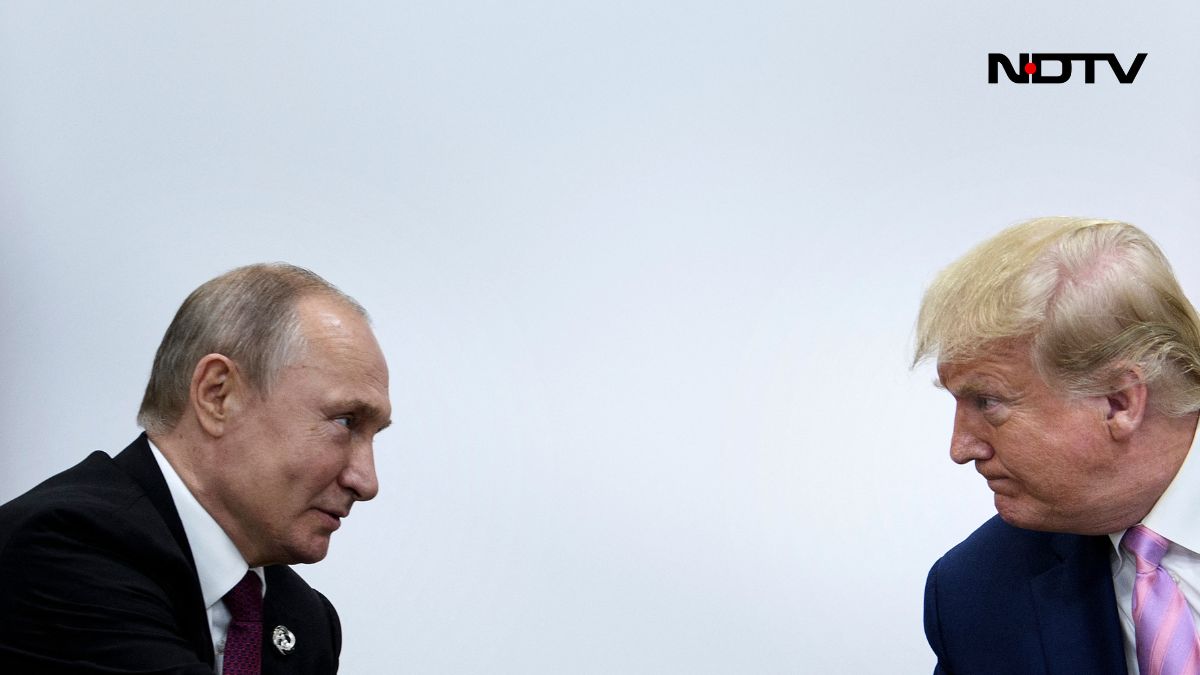Ukraine and the United States are closer than ever to signing a deal that would grant Washington a share of Kyiv’s revenues from natural resources. US President Donald Trump said his Ukrainian counterpart Volodymyr Zelensky may come down to the White House “this week or the next week” to sign the proposal which has ended up in the centre of the growing rift between the two leaders.
“The agreement’s being worked on now. They’re very close to a final deal,” Mr. Trump said on Monday at the White House.
Earlier, Ukraine’s deputy prime minister Olha Stefanishyna, posted on X that “Ukrainian and US teams are in the final stages of negotiations regarding the minerals agreement.”
“The negotiations have been very constructive, with nearly all key details finalized. We are committed to completing this swiftly to proceed with its signature. We hope both US and UA leaders might sign and endorse it in Washington the soonest to showcase our commitment for decades to come,” she added.
A Look Inside The Deal
An agreement on minerals was first proposed by Ukraine in the so-called ‘victory plan’ Mr Zelensky presented to Mr Trump last September before the presidential election. The idea was to offer businessmen and then-presidential candidate Trump a tangible reason for the US to continue to security guarantees.
However, the draft deal presented by the Americans last week reportedly sought 50 per cent of revenues from Ukraine’s natural resources without offering security commitments in return. The Trump administration has described that request as compensation for past American military and financial aid.
Without the security guarantees, Mr Zelensky had refused to sign a draft deal saying it would create a huge financial burden for future generations.
Since then, American and Ukrainian diplomats have been in talks to find a compromise.
Now, the current version of the agreement discussed by Washington and Kyiv reportedly contains more favourable terms for Ukraine than previous drafts. However, it also does not include security guarantees Ukraine had been requesting as it struggles to fight Russia’s invasion, according to a report by The New York Times.
Per the report, the terms of the deal are not final and could still evolve.
However, the White House on Monday said that the economic agreement with Ukraine “will not be a guarantee of future aid for war, nor will it include any commitment of US personnel in the region.”
Mr Zelensky has been insisting that Ukraine must have Western arms and backing in any peace deal, to prevent any Russian assault in the future, while Mr Trump remains adamant that the war must end quickly, without offering such security guarantees.
Russia Dangles Similar Deal
On Monday during an interview with Russian state television, President Vladimir Putin said American companies could do lucrative business deals in Russia. In what seems like a message to US President Trump about the perks of a better relationship with Moscow, Mr Putin said Americans can even help mine rare earths in Russian-occupied Ukraine.
He said that Russia had an “order of magnitude” more rare earth metals than Ukraine and that Moscow was “ready to work with our foreign partners, including the Americans,” in developing those deposits, according to the NYT report.
He said the invitation applied to Russian-occupied Ukraine, as well, and added that American companies could also “make good money” by helping to develop aluminium production in Siberia.
“There is something to think about here,” Mr Putin said, referring to aluminium, “as well as about joint work on rare earth metals and in other areas, for example, energy.”
Natural Reserves In Russia And Ukraine
According to Kyiv’s estimates, about 5 per cent of the world’s “critical raw materials” are in Ukraine. This includes around 19 million tonnes of proven reserves of graphite, which the Ukrainian Geological Survey state agency says makes the nation “one of the top five leading countries” for the supply of the mineral.
Ukraine reportedly also has a third of all European lithium deposits. Before the start of the war, the European nation also held 7 per cent of global titanium production. Further, Ukraine also has significant deposits of rare earth metals — a group of 17 elements that are used to produce weapons, wind turbines, electronics and other products vital in the modern world.
Some of these mineral deposits, however, have been seized by Russia since the invasion. According to Yulia Svyrydenko, Ukraine’s economy minister, resources worth $350bn remain in occupied territories currently.
Russia is also among the world’s leading nations in rare earth metal reserves. However, the country has yet to fully capitalize on these resources.
American Interest
The US is reportedly using for the mineral deal with Ukraine because it wants to reduce dependency on China, which controls 75 per cent of rare earth deposits in the world, according to the Geological Investment Group.
In December China banned the export of some rare earth minerals to the US, having previously limited mineral exports to the US the previous year.




